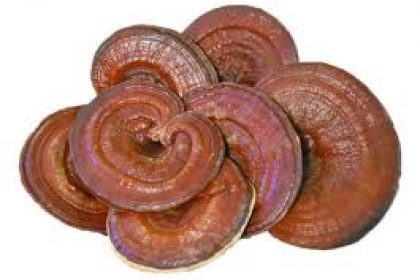Trametes(Coriolus ) Versicolor- Turkey Tail Mushroom Helps Fight Cancer

Trametes versicolor (Turkey Tail Mushroom)– also known as Coriolus versicolor and Polyporus versicolor – is a common polypore mushroom found throughout the world. Meaning ‘of several colours’, versicolor reliably describes this mushroom found in different colors.
Coriolus versicolor is a mushroom used in traditional Asian herbal remedies (see Chinese Herbal Medicine). Two substances extracted from the mushroom, polysaccharide K (PSK) and polysaccharide-peptide (PSP), are being studied as possible complementary cancer treatments. Verisicolor polysaccharid (VPS), another extract from the mushroom that is sold as a dietary supplement in the United States, is also being studied. A polysaccharide is a carbohydrate formed by a large number
How is it promoted for use?
Available scientific evidence does not support claims that the raw mushroom itself is an effective anti-cancer agent in humans. But there is some scientific evidence that substances derived from parts of the mushroom may be useful against cancer. Clinical trials suggest that PSK may help people with certain types of cancer by increasing survival rates and lengthening periods of time without disease, without causing major side effects. PSK is commonly used with other cancer treatments in Japan. PSP and VPS have not been studied as thoroughly.of sugar molecules.
Herbalists claim Coriolus versicolor and its extracts are useful against a number of conditions, including cancer and certain infections. PSK, one of the substances that can be extracted from Coriolus versicolor, is believed to be a strong anti-oxidant, a compound that blocks the action of free radicals, activated oxygen molecules that can damage cells.
Coriolus versicolor can be taken as a capsule, as an extract, or as a tea. The doses usually range from 1 to 9 grams per day, depending on the patient’s condition. Coriolus versicolor can be obtained in herbal medicine shops, health food stores, and on the Internet. A variety of extracts of the mushroom, including PSP and VPS, are also sold as dietary supplements in the United States.
What is the history behind it?
Coriolus versicolor has been a component of traditional Asian medicine for centuries. In the 1980s, the Japanese government approved the use of PSK for treating several types of cancer. In Japan, PSK is a best-selling anti-cancer drug where it is currently used as a cancer treatment along with surgery, chemotherapy, and radiation therapy. PSP was discovered more recently and has been studied mainly in China.
What is the evidence?
We are unable to find reports of controlled clinical trials with the Coriolus versicolor mushroom itself that have been published in the available peer-reviewed journals. However, there have been many studies looking at the usefulness of the extract PSK.
Researchers have found that PSK, one of the substances that can be extracted from Coriolus versicolor, has several anti-cancer properties. In some animal studies, it slows the spread of cancer cells. PSK also appears to have some immune system–boosting properties in people undergoing chemotherapy and may lessen some side effects of chemotherapy and radiation therapy. PSK is also believed to be a strong anti-oxidant, a compound that blocks the action of free radicals, activated oxygen molecules that can damage cells.
More than 2 dozen human studies of PSK have been reviewed by experts at the University of Texas MD Anderson Cancer Center. Almost all of these studies were done in Japan and focused on cancer of the esophagus, stomach, colon, or breast. Most of them found that people with cancer were helped by PSK. People who received PSK with other treatments, such as surgery, chemotherapy, or radiation therapy, generally had longer periods of time without disease and had increased survival rates compared with patients who received only standard treatment. Side effects from PSK in these studies were very mild. Smaller studies have suggested PSK may not be as effective against liver cancer or leukemia.
The effects of PSP are less well known. While some early Chinese studies of PSP have reportedly shown it may help protect the immune system from the effects of cancer treatment, most studies published in medical journals thus far have been in cell cultures or animals. These types of studies can suggest possible helpful effects, but they do not provide proof that such effects can be achieved in humans. Studies in animals have suggested that PSP may slow the growth of lung cancer and sarcoma, and may help make radiation therapy more effective in treating certain brain tumors. One small study in humans found that lung cancer patients taking PSP seemed to maintain their health longer than those who did not take PSP, although they did not get better and did not report improvement in cancer-related symptoms. Larger human studies will be needed determine whether PSP can be helpful for people.
A 2005 study using mice treated with a chemical that causes colon cancer did not find any reduction in colon tumors in mice also given VPS. A 2006 study found that VPS may have actually increased the number of large colon tumors in mice.
Cr: cancer.org

